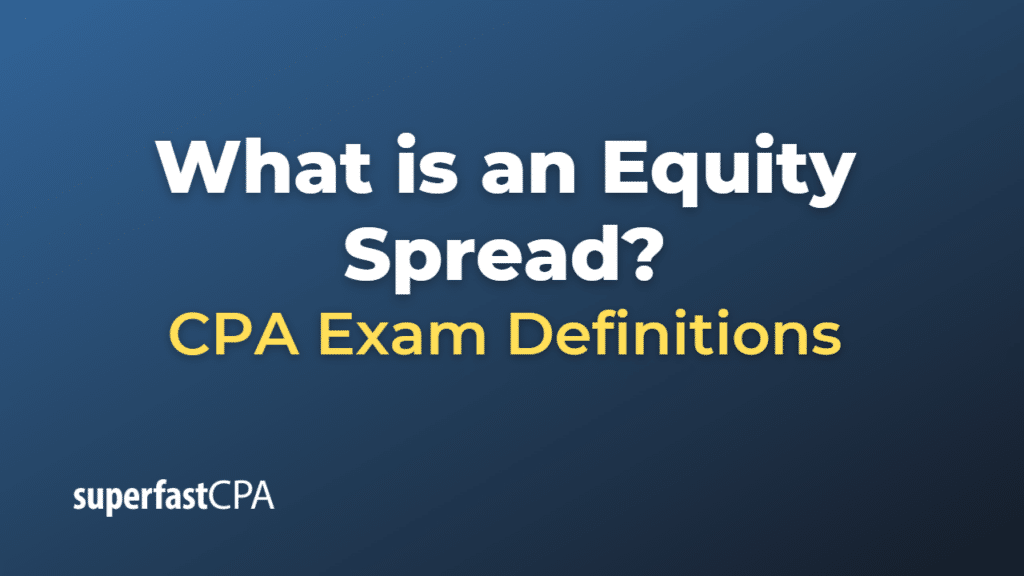Equity Spread
An equity spread, more commonly referred to as a stock spread or simply “spread,” is the difference between the bid price and the ask price of a stock.
The bid price is the highest price that a buyer (or buyers) is willing to pay for a stock, while the ask price (also known as the offer price) is the lowest price that a seller (or sellers) is willing to accept for a stock. The spread represents the gap between the price buyers are willing to pay and the price sellers are willing to accept.
For example, if the bid price for a stock is $50 and the ask price is $50.10, the spread would be $0.10.
Market makers and traders earn their profits from these spreads. In general, the smaller the spread, the more liquid the market (and vice versa). Highly traded stocks typically have smaller spreads, while less frequently traded stocks or those with lower volumes typically have larger spreads.
It’s important to note that the spread can also be affected by market volatility. In volatile market conditions, spreads may widen as the uncertainty increases.
Example of an Equity Spread
Let’s say you’re interested in buying shares of a technology company called TechCo. You look up the stock’s trading information and see the following prices:
- The bid price (the highest price a buyer is willing to pay) is $100.00 per share.
- The ask price (the lowest price at which a seller is willing to sell) is $100.05 per share.
In this case, the spread—the difference between the bid price and the ask price—is $0.05. This means that if you wanted to buy shares of TechCo immediately, you’d have to pay $100.05 per share, but if you wanted to sell shares immediately, you could only sell them for $100.00 per share.
This spread is how market makers (firms that buy and sell stocks to facilitate trading) make their money. They might buy a stock at the bid price and then sell it at the ask price, earning the spread as their profit.
In general, a smaller spread indicates a more liquid market for the stock, because it means the prices buyers are willing to pay and sellers are willing to accept are very close together. Larger spreads often indicate less liquid markets, where it might be harder to buy or sell the stock without affecting the price.













